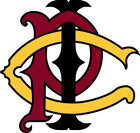Science 10F (SCI10F) - Required Course
This course exposes students to a broad perspective of science. The areas of focus are: physics - The Nature of Electricity, biology - Reproduction, chemistry - Atoms and Elements, and earth/space science - Exploring the Universe. Students will perform some laboratory investigations and will focus on lab safety.
Science 20F (SCI20F) - Required Course
This is a second general science course that expands on the four fields studied in Science 10F. In this course the areas of focus are: physics - Motion, biology - Dynamics of Ecosystems, chemistry - Chemistry in Action, and earth science - Weather Dynamics. As well, students will become even more familiar with lab work and lab safety.
Option Courses:
Electronics (Robotics) (ELE20G)
The goal of the course is to give students hands on practical application of science and math situations with the robot they have to solve and apply to see if they worked. Then they have to be able to analyze the differences and apply different commands in order for the robot to solve the initial problem. They are introduced to proper procedure and protocol for and engineers notebook. They will construct a base robot and then test and troubleshoot their creation. They will operate the robot using radio control in both arcade and tank style. Students will create the robot with sensors and commands in the program to have the robot react to its environment automatically.
Science Current Topics 30S (SCI30S)
Current issues in Grade 11 Science will explore current topics using the scientific inquiry model and process to better understand local experimentation with agriculture, the science of crime, and medical advances to improve the quality of life. The first topic includes a study of local food production industries and thei
Biology 30S (BIO30S)
Strongly Recommended: Science 20F
This course examines major body systems such as the circulatory, respiratory and digestive systems. Other topics include blood and immunity, excretion and waste management, protection and control, and wellness and homeostasis. Class time will be spent exploring these topics with laboratory activities, discussions, videos and lectures.
Biology 40S (BIO40S)
This course studies the DNA blueprint and how it controls us. As well, we will study how DNA is passed along through the generations and how it determines individual traits. Recent updates in biotechnology (manipulating genes, human genome project, bioengineering and ethical issues involved) are examined. Biodiversity will explore classifications of living organisms. Class time will be spent exploring these and other topics with laboratory activities, discussions, videos, lectures and field research.
Chemistry 30S (CHE30S)
Strongly Recommended: Science 20F
This course examines five basic clusters: Physical Properties of Matter, Gases and the Atmosphere, Chemical Reactions, Solutions and Organic Chemistry. There will be a higher level of mathematics in this course than in Science 20F. A variety of experiments will be performed. These labs will require a higher level analysis than those performed in Science 20F. A scientific calculator is required for this course.
Chemistry 40S (CHE40S)
Strongly Recommended: Chemistry 30S
This course examines five basic clusters: Kinetics (reaction rates), Chemical Equilibrium, Acid and Base Equilibria, Solubility Equilibria and Electrochemistry. Some algebra is used in this course. Some of the experiments performed will require a high level analysis. A scientific calculator is required for this course.
Physics 30S (PHY30S)
Strongly Recommended: Science 20F
This course introduces the topics of: Waves, The Nature of Science, Mechanics, and Fields. Physics has been designed with a general focus that the objectives in this course are more easily attainable than they traditionally were. The mathematics component has been toned down meaning that general relationships are discussed from a more intuitive perspective. Students must be prepared to complete homework assignments regularly and be committed to spending time out of class gaining an understanding of the concepts discussed in class. A scientific calculator is needed for this course.
Physics 40S (PHY40S)
Strongly Recommended: Physics 30S and proficiency in mathematics concepts extending to quadratic equations.
Physics 30S topics are revisited at a more comprehensive level with the addition of: Electric Circuits, Electromagnetic Induction, and Medical Physics. A commitment to completing homework is essential for success in this course. A scientific calculator is needed for this course.
Psychology 40S (PSY40S)
This course introduces major psychological theories and concepts and gives students a basic understanding of a variety of topics in psychology. It is also a prerequisite to complete the Psychology 42S Advanced Placement course in the second semester of Grade 12. Grade 11 students are encouraged to enroll in this course. Some topics that will be covered in the 40S course are: History of Psychology, Scientific Methods, States of Consciousness (including Sleep and Dreams), Nature vs. Nurture, Human Development, Social Psychology, and Personality. The course requires students to carry out research and experiments, complete textbook reading assignments, participate in class discussions, reflect on life experiences, and take part in group projects and activities.
AP Psychology 42S (PSY42S)
Strongly Recommended: Psychology 40S
This course is designed to provide students with the opportunity to engage with typical
introductory-level university psychology curriculum. It prepares students for the Advanced Placement Psychology exam. Students who earn a qualifying score on an AP Exam are eligible to receive a university credit and placement into advanced courses. Additional topics include Psychological Disorders & Therapies, Neuroscience, Sensation and Perception, Learning and Cognition, among others. Methods of learning include textbook reading assignments, class discussions and reflections, as well as research projects and papers.
